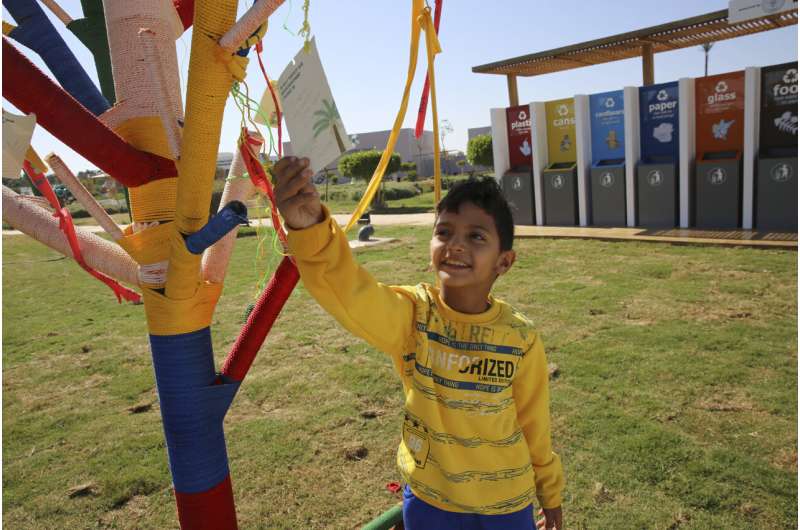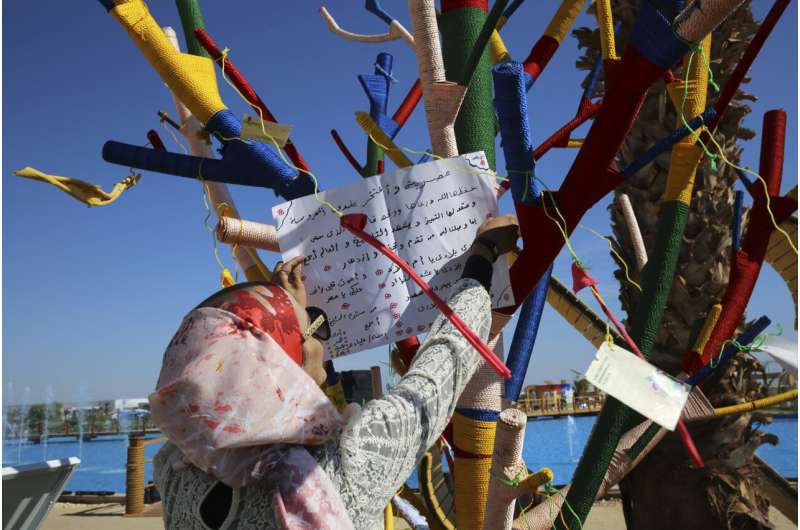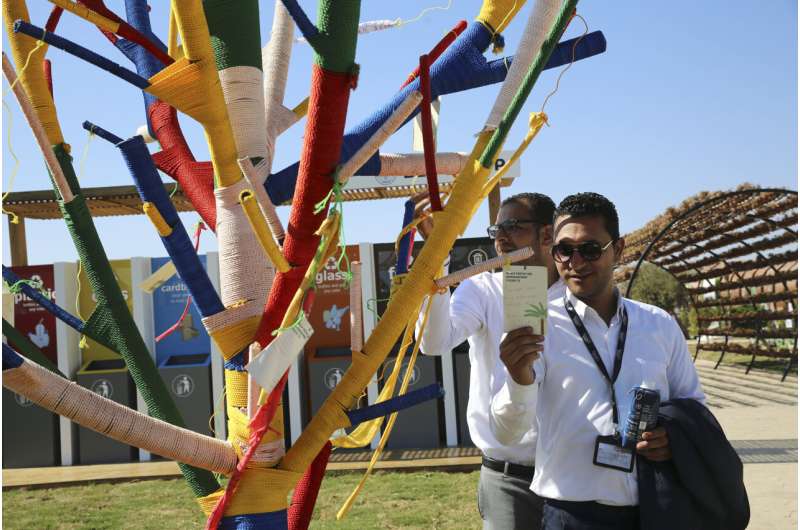Despair, lack of progress at climate talks, yet hope blooms

It's a desert, where little grows. It's a climate conference, where water is scarce inside buildings and out, lines are long, tempers are short, meetings go late and above all progress comes in one-drop drips.
Yet hope springs forth in the strangest places.
Not in the naïve new face, but in the hearts and minds of veteran activists and officials, who have gone through this frustrating sleep-depriving exercise, not once or twice but numerous times.
And it blooms in a odd metal "tree" sculpture in a center square here at the United Nations climate summit in Egypt. People write their hopes on green paper leaves.
"Hope is the only meaning (sic) that makes us ALIVE!" Mohamed Ageez, an Egyptian youth activist wrote.
Former U.S. Vice President Al Gore looks at more than 30 years of climate change efforts and sees hope in progress and change. United Nations Environment Programme Director Inger Andersen and The Nature Conservancy Chief Scientist Katharine Hayhoe see it in all the people in the halls working hard.
And Christiana Figueres, the former U.N. climate secretary who helped forge the 2015 Paris agreement and then started a non-profit called Climate Optimism, sees hope not as a noun but an action verb.
"Hope is a verb with its sleeves rolled up," Figueres told The Associated Press, quoting poet David Orr. "I think of hope and optimism as being very active and in fact being precisely the reason why we roll up our sleeves."

Asked how he doesn't despair after seeing heat-trapping emissions rising year after, Gore told the AP: "Despair is a big word. You know, they used to say denial ain't just a river in Egypt. Here we are in Egypt and despair ain't just a tire in the trunk. It's a real factor. But we also have the basis for hope."
He pointed to several political wins this year.
"In August, the U.S. passed the biggest climate legislation in history," Gore said. "In September, the people of Australia made a historic change and agreed to become part of the leadership in the world toward renewable energy. And then in October, just days ago, the people of Brazil made a decision to stop destroying the Amazon and start fighting the climate crisis."
"When people feel vulnerable to climate despair, I urge them to look at the real progress that is being made."
Whenever United Nations environment chief Andersen feels down in these meetings she takes note of what's happening all around her in the pavilions and offices: "In these halls, you will see people huddling over solutions over networking, saying 'Here's what we did. Maybe you can do that'."
Climate scientist Hayhoe finds hope in the same place.

"So when people say it was a complete failure and there's no hope, I say, just look around at every single face here," Hayhoe said. "There are tens of thousands of faces here, and every single one of them just about wants to change the world."
That tree of hope?
Gone.
It's been moved away from negotiations to the "green zone," far away from negotiators.
© 2022 The Associated Press. All rights reserved. This material may not be published, broadcast, rewritten or redistributed without permission.





















